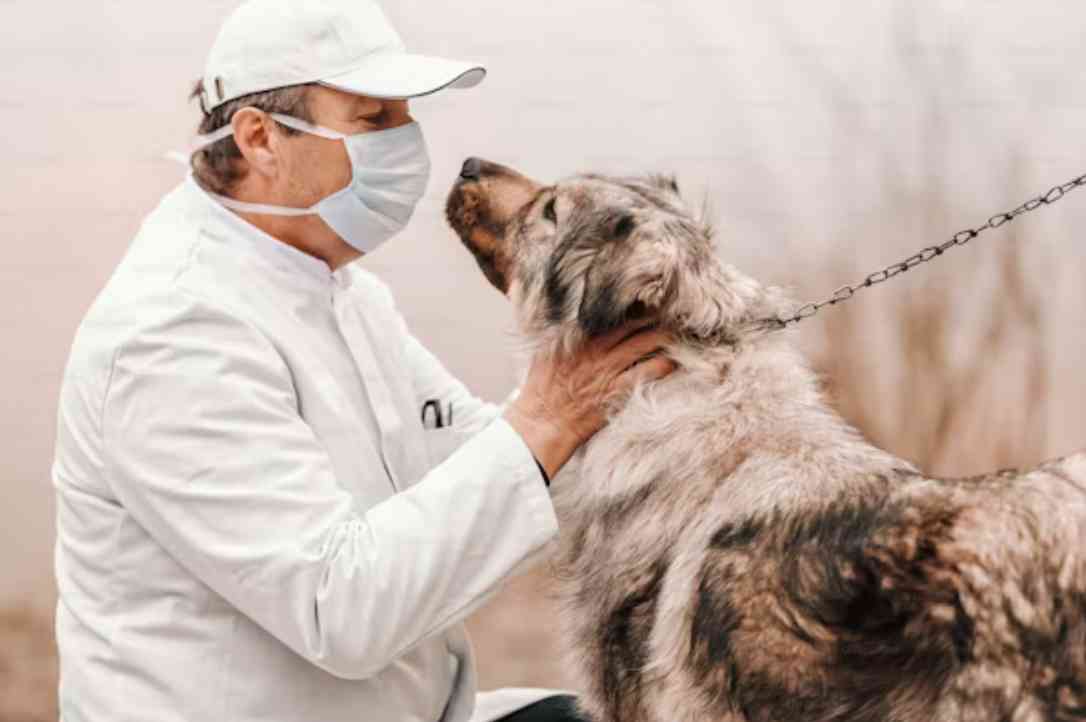Is your dog constantly shaking their head?
All that scratching and whining at their ears has got to stop. Nobody wants to see their furry friend miserable, and otitis externa aren’t just a minor annoyance. It is the second most common medical condition prompting dogs to visit veterinarians.
Left untreated, they can get nasty, even causing hearing problems. But don’t worry – you’re not powerless!
This blog will show us what’s up in those floppy (or pointy) ears. It will also explain why your vet is your best friend. And it will tell us the fastest ways to get your pup back to its happy, ear-trouble-free self.
Why Dog Ears Are Trouble Zones
Unlike humans, a dog’s ear canal has a distinct “L” shape, with a vertical portion followed by a horizontal one. This design, while aiding in sound perception, also creates an environment prone to trapping debris and moisture.
The warm, often damp conditions inside the ear canal provide an ideal breeding ground for bacteria, yeast, and even ear mites. These organisms can lead to otitis externa, discharge, and considerable discomfort for your dog. Dogs with floppy ears or too much ear hair are especially at risk. These features make the problem worse by trapping moisture and debris.
Routine ear cleaning is important but must be done with proper technique. Ear infections like otitis externa often require more than at-home remedies. Canine ear anatomy has unique challenges. This is why getting a veterinary diagnosis and treatment is crucial. It’s needed for safely and effectively resolving these infections.
Treatment Breakdown
Step One – The Vet Visit
Veterinarians are experts in figuring out the severity and what’s causing otitis externa in your dogs. They’ll figure out how bad the infection is, and if the eardrum is in good shape. This is super important because ear meds are like targeted weapons – you gotta know your enemy before choosing the right one.
Cleaning, The Professional Way
Sometimes, a regular bath-time ear cleaning won’t cut it. Severe cases often require anesthesia to get those ears squeaky clean. This gets rid of all the gunk blocking the medicine and lets your vet see what’s happening inside.
Ear Drops To The Rescue
Ear drops are usually your dog’s main weapon in this fight! The vet will pick the medication based on what’s causing the trouble. They might suggest anti-inflammatory ear drops like Mometamax Otic Suspension for dogs, as they have the right combo to knock out your pup’s otitis externa infection.
But remember to always talk to your vet before using this or any medication on your dog. Mometamax can induce side effects linked to deafness in a few sensitive dogs (e.g., geriatric), as PetRx warns.
When The Infection Needs Extra Firepower
Occasionally, ear drops alone aren’t enough. Then your vet might suggest systemic medicine pills. These are pills or injections for really stubborn infections. Your vet will always determine the safest and most effective treatment plan for your pet.
Don’t Ignore The Root Cause
Last but not least, always consider what’s causing the infections in the first place! Allergies can be a huge reason for those recurring ear troubles.
In an evaluation, it was found that allergies are a component of ear infections in up to 43% of cases. More specifically, food allergy is the major reason for ear infection in 65-80%– think itchy skin and sneezes too. Vet tests help pinpoint those allergies. No medication will work forever if you don’t solve the real problem fueling those nasty infections.
Stop The Cycle – Treat The Cause
Understand that even after successful treatment, otitis externa can sometimes recur. This recurrence often shows an underlying cause. It must be addressed for long-term resolution and prevention of chronic otitis externa.
Infestation, while less common than allergies, it’s important to rule out parasites like ear mites. Similarly, foreign bodies like plant material can get lodged. They can cause irritation and infections.
Moisture also creates a favorable environment for bacterial and yeast overgrowth. Thoroughly drying your dog’s ears after bathing or swimming is a crucial preventative measure.
You’re Your Dog’s Defender
You are your dog’s primary advocate for ear health. You must be vigilant. Look for subtle signs of discomfort like head shaking, scratching, or unusual odor. These signs are key for early action and a swift return to comfort. By seeking veterinary care promptly, you set your dog on the path to lasting relief.
Your dedication to following the treatment protocol and addressing underlying causes empowers you. It helps you prevent future ear infections.
FAQs
How Long Does It Take For Otitis Externa To Heal In Dogs?
Otitis externa infection can take around 2 to 4 weeks to heal in dogs, depending on the severity of the infection.
How Do You Treat Otitis Externa In Dogs At Home?
Use a vet-recommended ear cleaner to remove debris. If prescribed, apply the medication as directed. If your dog has allergies, your vet will guide you on managing those to prevent future infections.
Is Otitis Externa Painful For Dogs?
Absolutely. Otitis externa (external ear infection) is very painful for dogs.
Does Otitis Externa Go Away By Itself?
No, otitis externa usually does not go away on its own without treatment.
What Not To Do With Otitis Externa In Dogs?
You should not try to treat your dog’s otitis externa at home without consulting your veterinarian first
To conclude, it is important to remember that your commitment directly affects your dog’s well-being. A healthy dog with comfortable ears is the ultimate reward.






